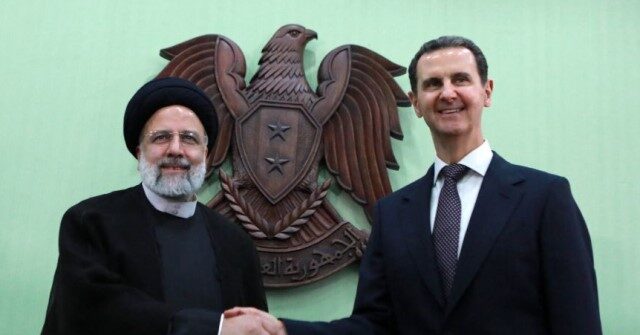The Iranian regime finds itself in a precarious position following a rapid and unexpected offensive by jihadi forces in Syria, which has led to significant territorial losses for Bashar Assad’s regime in a matter of weeks. The Wall Street Journal reported that Assad reached out to Tehran for military support as rebel forces advanced towards Damascus, only to be informed that assistance would be limited. Iranian officials placed the blame on Assad for failing to anticipate the assault, claiming that their military response was constrained by the looming threat of Israeli airstrikes. An Iranian aircraft en route to Syria had to turn back due to these risks, underscoring Tehran’s hesitance and the gravity of the situation on the ground.
In a surprising turn of events, Iranian leadership decided to pull back its forces rather than bolster Assad’s defenses, marking a significant shift in their strategy. Reports suggest that Iranian and allied militia forces, including the Islamic Revolutionary Guard Corps (IRGC), were instructed to refrain from military engagement and instead facilitate a peaceful transfer of territory to the advancing rebels. The rapid fall of key cities like Aleppo and Homs seemed to catch both Iran and the Assad regime off guard, as loyalist forces crumbled under pressure and even fled, leaving the way open for insurgents to make swift territorial gains.
As the conflict unfolded, Russia, initially a staunch ally of Assad, also recognized the dwindling prospects of his regime and pulled back. With limited resources stretched thin due to engagements in Ukraine and Gaza, Russia opted not to intervene robustly in Syria, mirroring Iran’s retreat from the battlefield. The implications of this abandonment highlighted the erosion of the Syrian military’s capabilities, which had already been compromised by years of corruption, defections, and an ongoing economic crisis, leading to reduced recruitment and conscription avoidance. This unravelling of the Syrian army showcased the vulnerabilities of Assad’s regime and raised questions about its capability to sustain itself without external support.
Iran’s ambassador to Syria expressed a sobering view of the situation, suggesting that the fall of Damascus was unavoidable. His comments reflected a recognition of the steep decline of Iranian influence in the region and the grievous implications of losing Syria as a strategic partner. Not only did it signify an end to Assad’s longstanding rule but also marked a devastating blow to the “Axis of Resistance,” which Iran had long cultivated. The loss of Syria presents significant risks for Iranian-backed groups, such as Hezbollah, which now finds its supply lines jeopardized, threatening Tehran’s ability to project power across its borders.
Realizing the potential collapse of its alliances, the Iranian regime’s leaders face a crisis that could push them to adopt a more defensive posture domestically and regionally. Analysts suggest that Iran may choose to escalate its nuclear program as a countermeasure to perceived weaknesses. Responding to the changing narrative around the rebels, the Iranian regime has softened its rhetoric, shifting from labeling them “terrorists” to acknowledging their legitimate claims and signaling openness to dialogue on future relations. This marks a significant pivot in Iran’s strategic communication, reflecting a recognition of its own vulnerabilities in the face of adversity.
As tensions mount and the fragility of Iran’s regional position becomes apparent, the prospects of a stable Iranian influence dwindle. The broader repercussions of Iran’s retreat from Syria, including potential re-evaluations of its strategies regarding its proxies and ally relationships, pose a vital challenge for the regime. Israeli officials have characterized Iran’s involvement and subsequent losses as a severe miscalculation, suggesting that regional dynamics are shifting in favor of opposing forces. In summary, the current crisis underscores an unprecedented phase of instability for Iran and the diminishing prospects for its geopolitical ambitions in the Middle East.

